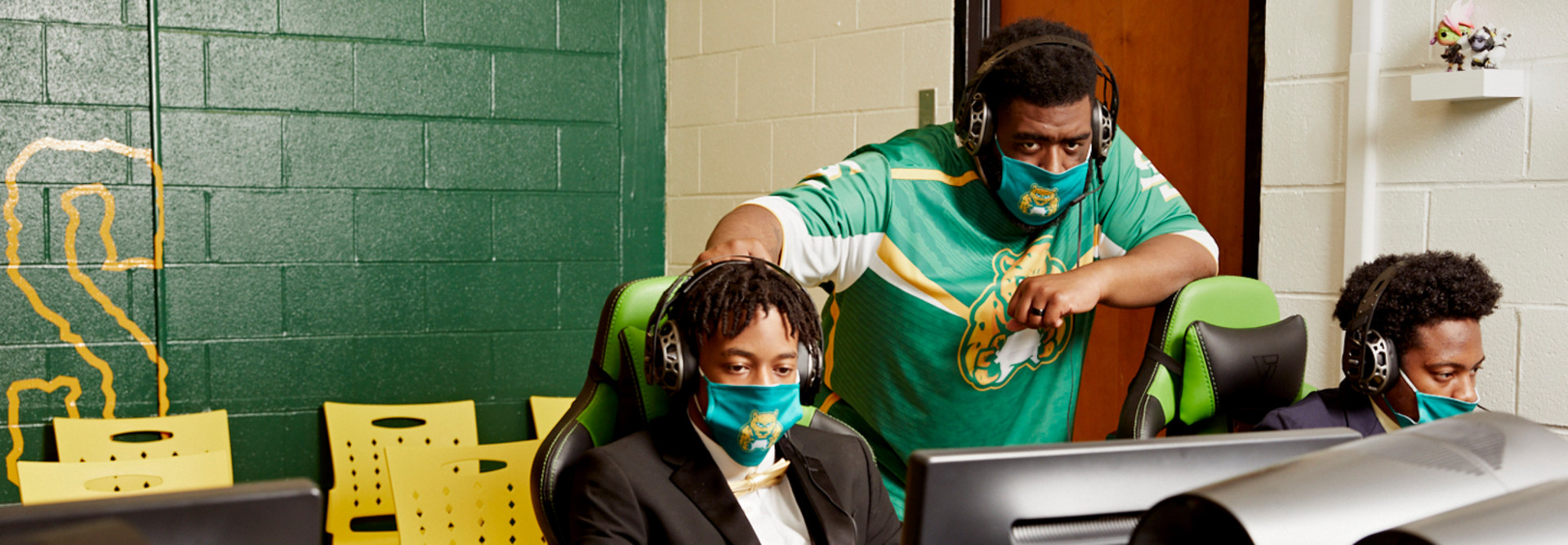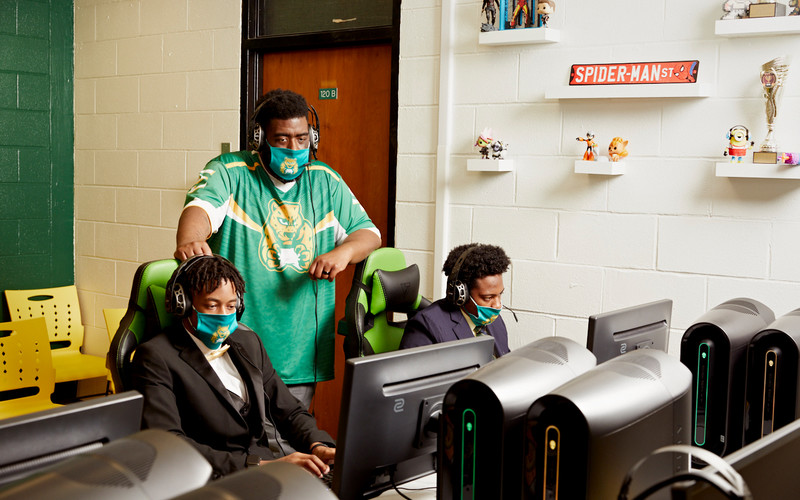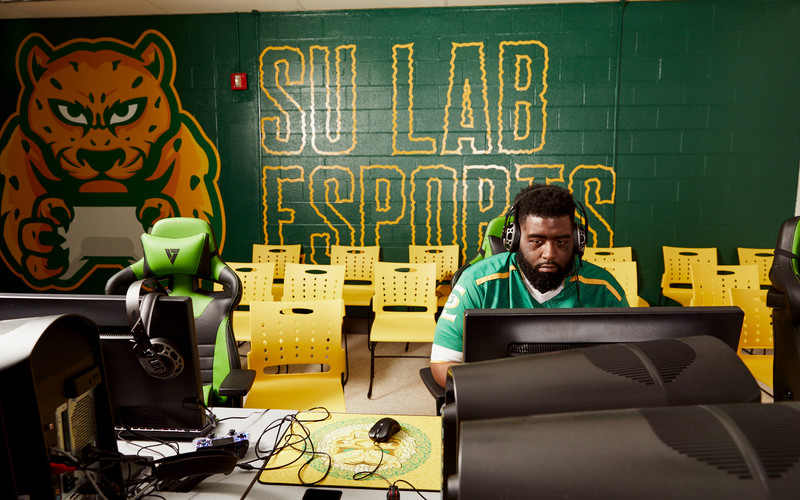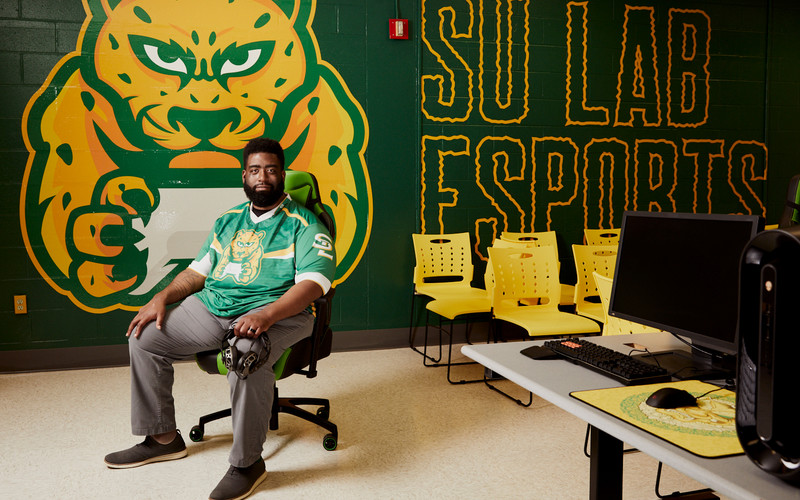Two years ago, when Christopher Turner joined the faculty at Southern University Laboratory School to teach visual arts and graphic design, he brought with him a love of competitive gaming. This led him to build an esports program at the K–12 school, located on the campus of Southern University in Baton Rouge, La. Earlier this year, SULS solidified its commitment to esports with the grand opening of a new esports and media room, the first of its kind in the state.
Now, Turner not only teaches a gaming course at SULS but also coaches the school’s esports team, and is general manager and head coach of the university’s esports team. EdTech recently spoke with him about what it takes to bring something new to education and how to build an esports pipeline that leads to college and employment opportunities for students.
EDTECH: Why bring esports to Southern University Laboratory School?
TURNER: Before the principal recruited me, he told me that he wanted to win. I took that to mean, what can we do to better the school? Being an avid gamer, I started researching esports leagues for high school kids. I went to my administrators and proposed starting an esports club — not only a club, but a full program where we had a team and we created an ecosystem around the students.
EDTECH: What do you say to skeptics who question the value of esports?
TURNER: When I proposed it, my principal wasn’t really sold on the concept of esports. But he’s an avid gamer as well. I brought in the Louisiana State University esports team to meet with the administration and describe the scope of their program. We took a trip to Dallas one weekend for a conference and went to the esports arena in Arlington, which is the biggest esports arena in the United States. From that point, my principal was sold on it.
I talk to parents about the numbers. You have the head of IBM saying things like, “The new thing is new-collar workers — we’re able to pull them from high school and give them a trade, and now they’re making six figures with the training opportunity they had through IBM.”
KEEP READING: Maintaining STEM engagement requires imagination from K–12 schools.
We’re a college preparatory school, but you can’t escape the reality that 40 percent of students who start college don’t finish.
My main objective is not only to teach students things within the game that can help them in life, but also to have strategic technology partners on board to give them a skill set.
EDTECH: Are your students also learning many of the same things you get with traditional sports — competition, teamwork, responsibility, showing up?
TURNER: Of course. We also talk about health and wellness, like being at the console and not grabbing unhealthy snacks, having some water, maybe some nuts and fruit. Using the proper posture, giving your hands and wrists a break. Doing exercises to bend your hands. Focusing on that health and wellness piece is really important — it’s actually one of our pillars.
EDTECH: We know that SULS is the feeder for Southern University and that you have recently created a complementary esports program at the university level. How do you see the two programs supporting each other in the future?
TURNER: I envision possibly building an esports scholarship through our foundation and getting those university students to come back to help on the laboratory side to train the younger students and keep that ecosystem going. I want that type of ecosystem where it’s just feeding each other, along with strategic partners surrounding it to provide us with services and job opportunities.
EDTECH: Do you see a potential for expansion — for an esports program that extends outside the Southern University system?
TURNER: My vision is not only to build this room for our students, but to also host schools when COVID-19 is over. The betterment of regional esports means other school districts need to buy in as well.
EDTECH: What advice do you have for someone who wants to replicate your success elsewhere?
TURNER: First, don’t be afraid to leverage private partners, to vet them and bring them into the educational space. Second, build a team around you that’s strong enough. I have an incredible team of people who support me and who know how to reel me in when I go too far.
Third, have a five-year plan. We were able to achieve some things here faster than I expected. Finally, have a goal for each year — and not just something like “build an esports room.” Focusing on that community aspect is really important, because you can build a room, but if nobody’s going to participate, you just have a room full of expensive equipment.
DISCOVER: Getting started with esports may be easier than you think.














